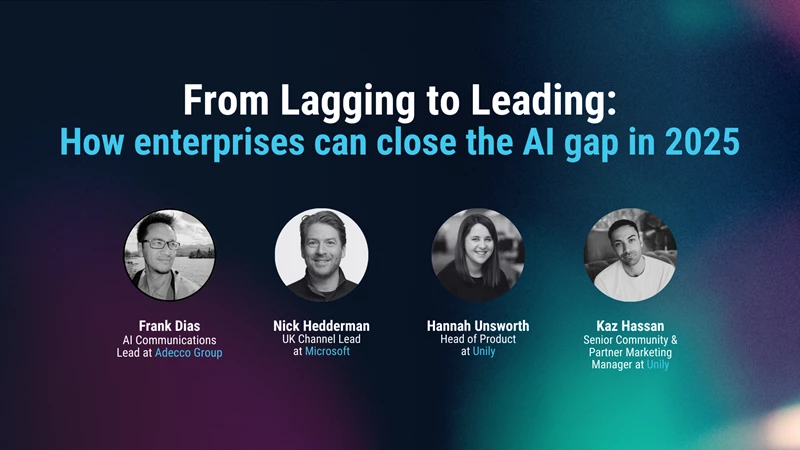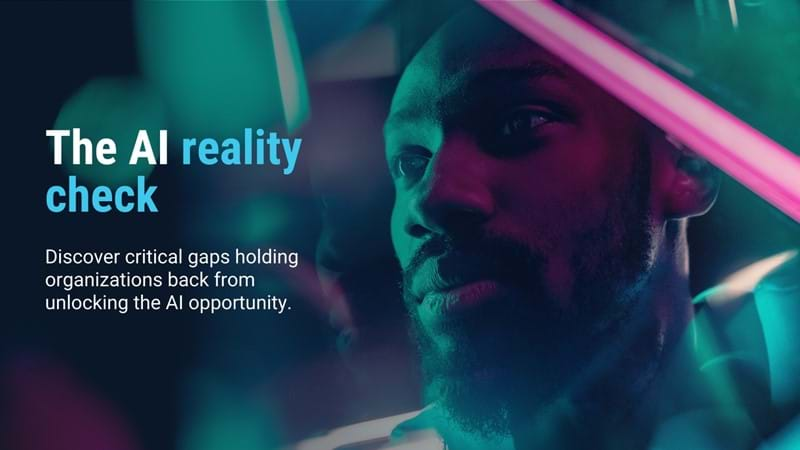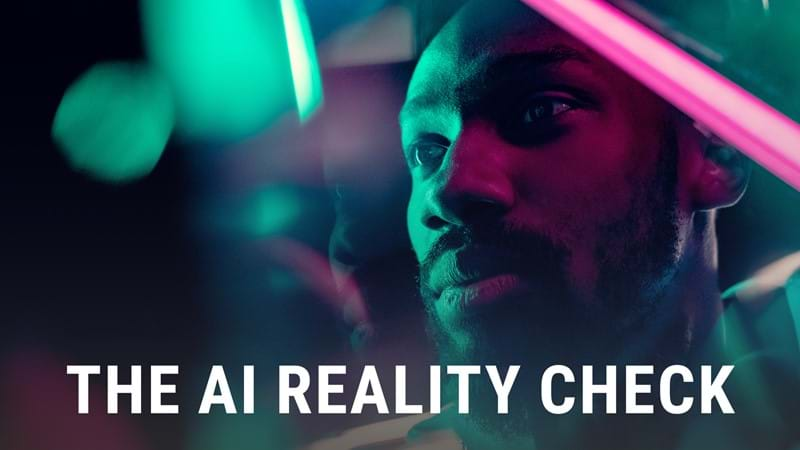How can we prepare our businesses for the workplace of the future and the rise of AI
We live in an era of exponential change, shaped by advances in technology. As we move towards a new stage of technological reliance, how can we prepare our businesses for the challenges and opportunities ahead, and which business models are most likely to succeed in the workplace of the future?

The future of work is now
In the last decade, the workplace has undergone more of a transformation than perhaps ever before in history. Accelerated by the COVID-19 pandemic, new ways of working are now upon us. Underpinning this transformation are new technologies that power new ways of working.
We now live in an era of hyper-connectivity with perpetual access to instant information from anywhere, on any device. Cloud Intranet technologies have uprooted the physical workplace, meaning we can access the office from anywhere in the world, and this in turn has allowed our workforces to become more remote and geographically dispersed.
As technology continues to advance at pace, we brace ourselves for further radical changes to the way we work and indeed the way we conceive work. Preparing ourselves for this change and creating businesses that are equipped to make the most of the opportunities soon to be presented will become defining factors in business success.
The robots are coming (to help us)
Artificial Intelligence is undoubtedly going to be the catalyst behind many major changes both in the workplace and in our personal lives. While there has been much debate over jobs being lost to a Kubrick-esque robot invasion, as we begin to embrace AI technologies in our home lives, the dialogue is beginning to shift.
In recent times the tone of AI-related discourse has taken a more positive outlook. Ironically, it seems now that the rise of AI is more likely to create jobs than displace them.
"By 2025, 2 million new roles will be created as a result of AI"
Gartner predicts that by 2025, 2 million new roles will be created as a result of AI. What is still unclear is what these as-yet-unestablished-jobs might entail. Some predictions estimate that up to 85% of the roles that will make up the job market of the future do not yet exist, which makes preparing our businesses for them somewhat challenging.
We can however make some informed predictions about the changing nature of human capital. We know that in a world where AI is automating repetitive tasks and providing new insights on mass data, there will be an increased demand for creative, innovative thinking.
Already we are seeing a pattern of behavior whereby technology is alleviating the burden of unskilled tasks like data entry. According to research by the Fabian Society, 44% of U.S. workers say that some parts of their job have been taken over by automation, freeing them up for more strategic work.
"44% of U.S. workers say that some parts of their job have been taken over by automation, freeing them up for more strategic work"
If we consider this the early signs of things to come, we can assume that the rise of intelligent technologies will both allow and force the human workforce to spend even more time strategizing and ideating, which seems promising both for growth and efficiency.

More focus on life-long learning
Understanding that we are approaching a period of uncertainty regarding the types of skills that will be valuable in the next decade, one way of futureproofing for this scenario is to create a workforce that is open to new opportunities and prepared to re-skill to take advantage of them.
Early signs suggest that AI will be well equipped to support learning and development in the workplace. Already AI tutors exist in the education sphere and business leaders expect the same technology to appear in the workplace in the form of digital mentors.
Businesses, therefore, need to begin to shift the mindset of their employees to prepare them for a future of lifelong learning. In a world where change is the norm, the ability of our workforce to quickly adapt to new circumstances will be an essential part of remaining competitive.
Investing in culture
Understanding that human value will come from our capacity for creative thought, imagination, and innovation, it is fair to suggest that those enterprises that focus on creating an atmosphere conducive to those qualities will produce the best results.
Achieving this will require investment in a culture of creativity and collaboration. Many suggestions have been floated for how companies can begin to achieve this, and we find some archetypal examples when we look towards the most innovative businesses operating today.
"Investing in collaboration spaces and infrastructure to support flexible working now may be the best way of safeguarding future success."
Google famously takes a futuristic approach to the workplace, providing playful, collaborative spaces that flip the traditional office set-up on its head. Why? Because they want to create an innovative company mindset that fuels creative problem-solving.
In the workplace of the future, traditional cubicle style offices and 9-5 working patterns will likely be rendered redundant in a world where creativity and ideas are valued over time spent at a desk. Therefore, investing in collaboration spaces and infrastructure to support flexible working now may be the best way of safeguarding future success.
The human/tech partnership
The key challenge for businesses as we move toward the AI-era will be creating an environment optimized for the most harmonious tech/human partnership.
The utopian view of the workplace of the future is one of a symbiotic relationship between man and machine, whereby AI-led technology supports human creativity. The business models that are most likely to prosper under these conditions are those that focus on playing to the strengths of both human and artificial intelligence.
Those businesses that succeed in creating the conditions most conducive to a human/tech partnership are likely to seize a sizable competitive advantage
Achieving this will require more investment in culture, innovation, and an open attitude to change. This will be a period of intense experimentation, but those businesses that succeed in creating the conditions most conducive to a human/tech partnership are likely to seize a sizable competitive advantage.
Download the full report
For an exhaustive overview of the ways AI is set to change the digital workplace and exclusive advice from industry experts on how businesses can begin to take advantage of new enterprise technologies, download our guide in collaboration with Microsoft and Clearbox.












